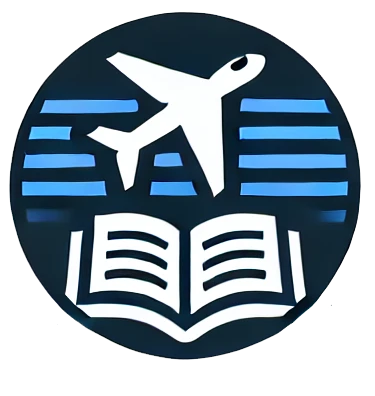Lean Thinking and Problem Solving Techniques
Training ID: T2414
Training Language(s): English
Available Format(s): E-Learning
The Lean Thinking and Problem Solving Techniques training is designed for professionals in the aircraft manufacturing industry who seek to improve operational efficiency, eliminate waste, and solve complex problems using lean methodologies. This course equips participants with the tools and techniques of lean thinking, focusing on value creation, waste reduction, and process improvement. Participants will also learn structured problem-solving approaches that help identify root causes and implement effective solutions in production environments.
The training covers key lean principles such as value stream mapping, continuous improvement (Kaizen), and problem-solving frameworks like the PDCA (Plan-Do-Check-Act) cycle and 5 Whys. By mastering these tools, participants will be able to contribute to more efficient, cost-effective, and streamlined production processes.
Benefits for Individuals
- Lean Expertise: Learn how to apply lean principles to optimize processes, eliminate waste, and improve efficiency in aircraft manufacturing.
- Enhanced Problem-Solving Skills: Gain structured approaches to solving problems, identifying root causes, and implementing effective, lasting solutions.
- Career Development: Strengthen your skills in lean thinking and problem-solving, which are highly valued in the aerospace manufacturing sector and essential for leadership roles.
- Certification: Earn a certificate that validates your understanding and practical application of lean methodologies and problem-solving techniques, boosting your career prospects.
Benefits for Companies
- Increased Operational Efficiency: By implementing lean principles, companies can reduce waste, minimize downtime, and streamline production processes, leading to cost savings and higher productivity.
- Improved Problem-Solving Capability: Equip employees with the tools to address production issues quickly and effectively, reducing delays and ensuring smooth operations.
- Cost Reduction: Lean thinking helps to identify and eliminate non-value-added activities, resulting in more efficient use of resources and lower operational costs.
- Continuous Improvement Culture: Foster a culture of continuous improvement by embedding lean thinking and problem-solving techniques into the daily operations of the company, leading to long-term gains in quality and performance.
This training is ideal for engineers, production managers, and quality assurance professionals who are looking to enhance their ability to apply lean principles and solve problems effectively in aircraft manufacturing environments.
By the end of the Lean Thinking and Problem Solving Techniques training, participants will be able to:
Understand Lean Principles: Gain a comprehensive understanding of lean thinking concepts, including waste elimination, value creation, and continuous improvement, within the context of aircraft manufacturing.
Identify and Eliminate Waste: Learn how to identify non-value-added activities and inefficiencies in production processes and apply lean techniques to eliminate waste.
Apply Problem-Solving Frameworks: Master structured problem-solving approaches such as the PDCA (Plan-Do-Check-Act) cycle and the 5 Whys to resolve complex production issues.
Conduct Value Stream Mapping: Learn how to map production processes to identify bottlenecks and areas for improvement, helping to optimize workflow and resource utilization.
Implement Continuous Improvement (Kaizen): Understand how to apply the Kaizen methodology to foster a culture of ongoing process improvement and innovation in production environments.
Address Root Causes of Problems: Develop the skills to identify and address the root causes of production challenges, ensuring that solutions are effective and sustainable.
Drive Operational Efficiency: Use lean tools and problem-solving techniques to enhance overall operational efficiency, reduce costs, and improve product quality.
By completing this course, participants will be equipped with the knowledge and skills to implement lean thinking and structured problem-solving techniques in aircraft manufacturing, contributing to more efficient and streamlined production processes.
The Lean Thinking and Problem Solving Techniques training is ideal for:
- Manufacturing Engineers: Professionals responsible for optimizing production processes who want to apply lean principles to improve efficiency and reduce waste.
- Production Managers and Supervisors: Leaders overseeing day-to-day operations who need to solve problems quickly and ensure smooth, continuous production.
- Quality Assurance Teams: Individuals tasked with maintaining product quality and ensuring that production processes are aligned with lean principles to minimize defects and improve performance.
- Process Improvement Specialists: Professionals focused on identifying inefficiencies and implementing solutions that drive continuous improvement in production.
- Maintenance Personnel: Those involved in maintaining equipment and ensuring optimal performance who can apply problem-solving techniques to reduce downtime and improve operational efficiency.
- Supply Chain and Operations Managers: Individuals responsible for coordinating production flows and managing inventory who want to implement lean practices to streamline operations and improve resource utilization.
This training is essential for anyone in aircraft manufacturing who is looking to improve operational efficiency, solve production challenges, and foster a culture of continuous improvement within their organization
To ensure a smooth and seamless experience in accessing and completing our e-learning courses, the following system requirements are recommended:
Hardware Requirements
- Device: A desktop or laptop computer is recommended, though the course can also be accessed on tablets or smartphones.
- Processor: 2 GHz or faster processor
- RAM: At least 4 GB of RAM (8 GB recommended for optimal performance)
- Storage: 500 MB of free disk space for temporary files and course materials
- Display: Minimum screen resolution of 1024×768 pixels
Software Requirements
- Operating System:
- Windows 7 or later
- macOS 10.12 (Sierra) or later
- iOS 12 or later (for mobile users)
- Android 8 or later (for mobile users)
- Browser: The latest version of any of the following browsers:
- Google Chrome
- Mozilla Firefox
- Microsoft Edge
- Safari
- Other Software:
- PDF Reader (such as Adobe Acrobat Reader)
- Office suite (for downloading/viewing course materials)
Internet Requirements
- Connection: Broadband internet connection (minimum 5 Mbps; 10 Mbps or higher recommended for videos and interactive content)
Additional Requirements
- Audio: Speakers or headphones for video and audio content
- Video: Web camera and microphone may be required for interactive sessions or assessments (optional depending on course format)
- JavaScript: Must be enabled in the browser
Cookies: Browser cookies must be enabled to track progress and save course data
Subscribe to our newsletter
